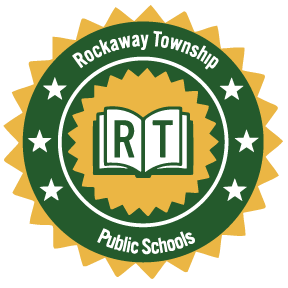ARP ESSER LEA Use of Funds Explanation
One of the requirements for Local Educational Agencies (LEA) to receive funds from the American Rescue Plan, or ESSER III, is to share our plan for the use of the funds on our website. As we continue to refine this plan over the grant period (2021-2023), we will continually gather more input from our stakeholders within the community. What follows are the statements LEA's must respond to within the application for the funds.
The extent to which and how the funds will be used to implement prevention and mitigation strategies that are, to the greatest extent practicable, consistent with the most recent CDC guidance on reopening schools, in order to continuously and safely open and operate schools for in-person learning:
Rockaway Township will, to the fullest extent, implement prevention and mitigation strategies that are consistent with current and future CDC guidelines for reopening schools and operating in-person instruction.
How the LEA will spend its remaining ARP ESSER funds consistent with section 2001(e)(2) of the ARP Act:
We plan on using the remaining ARP ESSER Funds to help close the digital divide within our schools.
How the LEA will ensure that the interventions it implements, including but not limited to the interventions implemented under section 2001(e)(1) of the ARP Act to address the academic impact of lost instructional time, will respond to the academic, social, emotional, and mental health needs of all students, and particularly those students disproportionately impacted by the COVID–19 pandemic, including students from low-income families, students of color, English learners, children with disabilities, students experiencing homelessness, children in foster care, and migratory students. Under this requirement, an LEA must engage in meaningful consultation with stakeholders and give the public an opportunity to provide input in the development of its plan. Specifically, an LEA must engage in meaningful consultation with students; families; school and district administrators (including special education administrators); and teachers, principals, school leaders, other educators, school staff, and their unions.
Using the guidance provided by the State of New Jersey, most notably the four pillars of Learning Acceleration: Principle 1: Provide conditions for teaching and learning that will foster social and emotional well-being of students, families, and educators; Principle 2: Improve equitable access to grade-level content and high-quality resources for each student; Principle 3: Prioritize content and learning by focusing on the depth of instruction, rather than the pace; and Principle 4: Implement a K-12 accelerated learning cycle to identify gaps and scaffold as needed, the District will design its plans for learning acceleration. We will gather stakeholders from all areas of the community to gauge their input on the programming we provide.
Additionally, an LEA must engage in meaningful consultation with each of the following, to the extent present in or served by the LEA: Tribes; civil rights organizations (including disability rights organizations); and stakeholders representing the interests of children with disabilities, English learners, children experiencing homelessness, children in foster care, migratory students, children who are incarcerated, and other underserved students.
We will include any members of the above groups in our initial outreach to the community for input.
